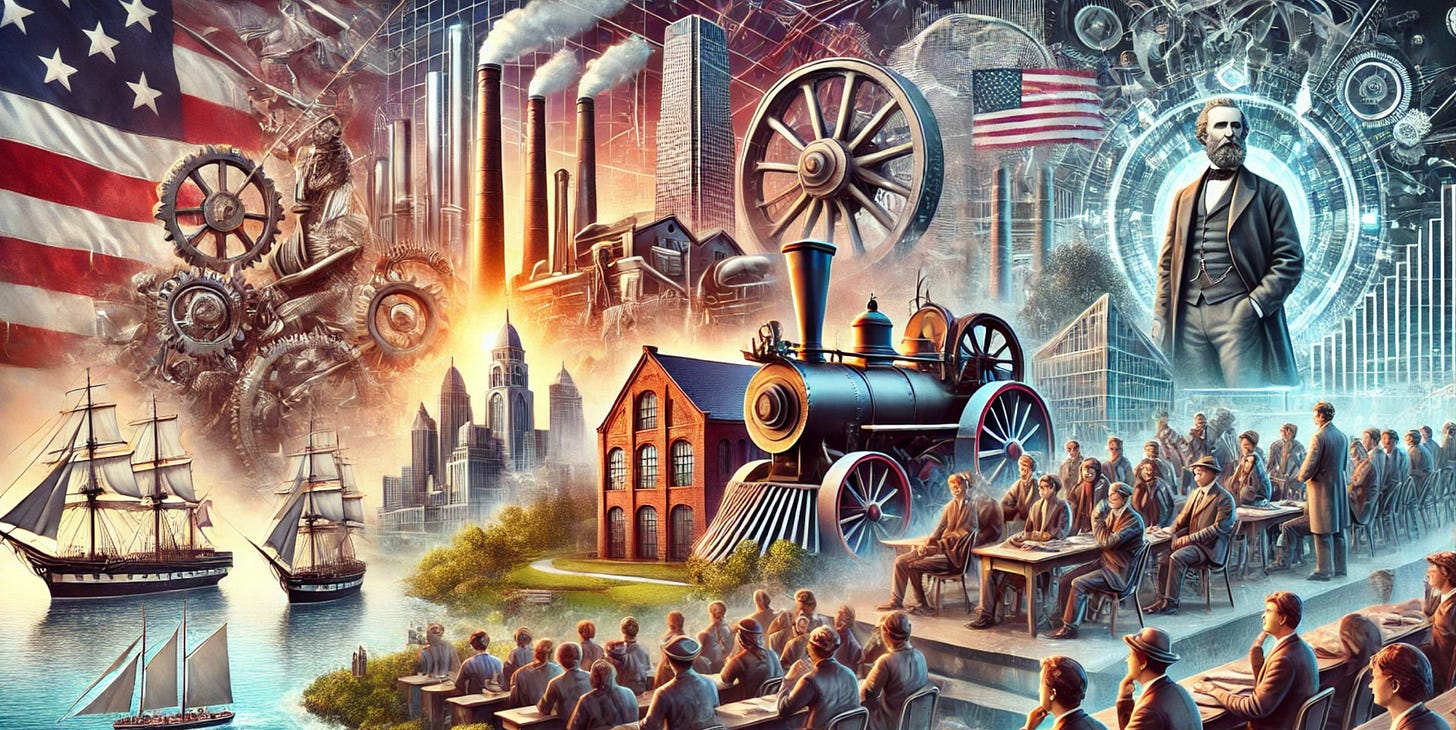American Economic History: Introduction
No Grand Narrative allowed: An episodic approach to American economic history, vaguely grouped around the center point of "American Exceptionalism"...
No Grand Narrative allowed: An episodic approach to American economic history, vaguely grouped around the center point of "American Exceptionalism"...
Another new semester begins, and here I am—at the age of 64—preparing to teach a brand-new course for the first time, and not one that I am terribly excited at teaching: American Economic History. Clearly I am a complete failure at academic workload gamesmanship…
What do I hope to do?
Marty Olney—who was the last member of the permanent faculty here at Berkeley to teach this, when she did so nearly a decade ago, says: do not try to tell a narrative, with the beginning, a middle, and a fitting and suitable an at today making the whole thing hang together. The students simply do not have the background historical knowledge for any kind of Grand Narrative approach to American Economic History to be comprehensible to them. (And, of course, there is the fact that all Grand Narratives are false albeit some can be useful.)
So I have decided to go week by week, with themes, questions, and tools with which those can be addressed:
If there is going to be an overarching theme, kind of sort of tying everything together, it is going to be "American Exceptionalism”: Is America an exceptional country? Or rather, in what sense is America an exceptional country? And how can the fact that it is exceptional in some senses for good and bad, how can that be useful to us as we try to think about the way things work?
We will jump. roughly chronologically, from major topic to major topic—from colonization and industrialization to the2008 financial crisis and the rise of Silicon Valley. Whether overarching themes will emerge along the way is anyone’s guess. Whether this is a useful way of building student analytical skills is something we will have to wait to see.
I do hope to make even the non-STEM majors in the course dip their toes into data science—how we can clean data and then count things to see whether and how economic models can provide insight, and also whether and how looking seriously at history can challenge economists’ assumptions about how the world must work.
Wish me luck!
Slides:
And, below the fold, a lightly-edited rough lecture transcript:
Keep reading with a 7-day free trial
Subscribe to Brad DeLong's Grasping Reality to keep reading this post and get 7 days of free access to the full post archives.





